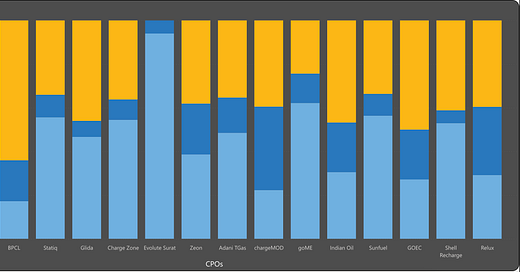This is a guest post by Shyam Sunder.
Shyam is a techie who has been following the EV space for more than a decade now. He loves going on road trips on his ZS EV and is a capitalist at heart. He currently works as a Senior Product Manager at Adobe based out of Bangalore.
I would like to draw your attention towards the latest policy by the Ministry of Power which has implemented price caps on EV charging in India. I wanted to call out the specific impact areas this policy is going to create.
Power Ministry link to EV charging guidelines
TeslaClub India discussed the Charging Guidelines in the last 20 minutes of X Spaces on 29/09/2024. Please listen to it here.
Few slots remain to book your demo slot for EVInfra.BI - the first of its kind intelligence tool. Book now!
The total costs are bucketed as follows :
Electricity costs by the DISCOM
Service Charges
Land rental cost
GST
The government has capped service charges for DC charging to Rs 11 per kWh during solar hours and Rs 13 per kWh during non solar hours.
The CPO now has to recoup their investments in buying the hardware from Charger OEMs, installing the chargers and upgrading the transformers wherever required. The installation and upgradation costs can be around INR 10 Lakhs (~USD 12,000). All these charges show up under Service Charges.
Can this be a wrecking ball to India's EV charging infrastructure?
Rural Charger Scarcity: Uniform price caps discourage rural investment, increasing range anxiety and deterring EV adoption in non-urban areas. The demand for EV charging is significantly lower in rural areas. By having such price caps, we are further discouraging CPOs from doing rural build out of EV charging infra. The payback period for EV charging shoots up manifold if the price is capped.
Keep reading with a 7-day free trial
Subscribe to ExperiencesWithEVs to keep reading this post and get 7 days of free access to the full post archives.





